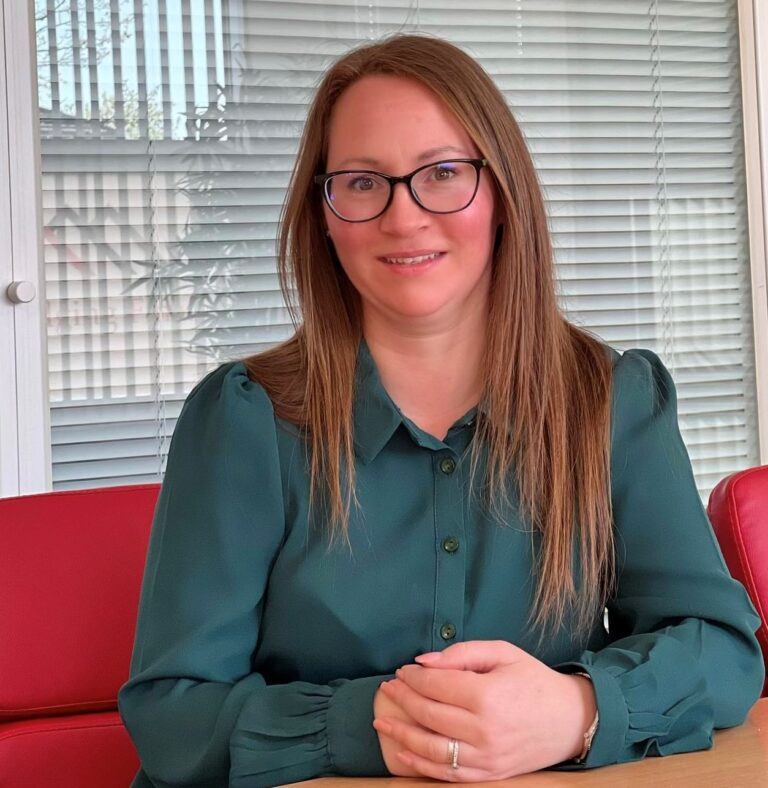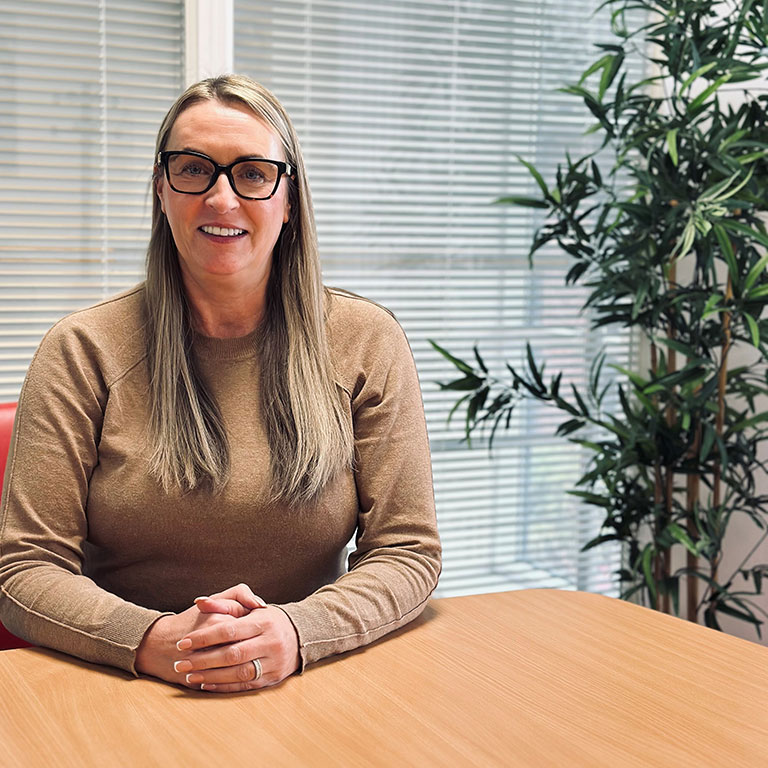Important Advice for First Time Buyers
Speak to an Expert Advisor
or
Why Choose Us
Why Choose Ascot Mortgages
What Our Clients Say About Us
Excellent service regular communication. Reassuring staff that help every step of the way and are extremely patient and supportive. I have used them twice and will continue to do so. Natalia and James thank you for all your work.
From supporting me with putting an offer on a house to explaining mortgage rates, income protection, and so much more, Courtney has been exceptional every step of the way. The ability to WhatsApp her with questions and receive timely updates has made the entire process seamless and stress-free.
I’ve already recommended Courtney and Ascot Mortgages to friends, and I wouldn’t hesitate to use her again in the future. If you’re looking for a knowledgeable, supportive, and dedicated mortgage advisor, I highly recommend her!
Recently I’ve been working a lot with Natalia Barry and Matthew Bradburn, who have both been outstanding. Whenever I have a question, they always have the answer immediately or will find it very quickly.
For anyone in search of a friendly, reliable service, Ascot Mortgages are definitely right for you.
Couldn’t thank them both enough for securing my mortgage on what was such a complex case and will 100% be using them in the future.
didn’t expect getting a mortgage and buying a house would be so easy, Tracey and Richard are extremely professional
made the entire process so easy
Deserve more than 5 stars !!!!!!! Alison should be proud 🙏🏼
If you want a clear, down to earth and friendly service, you should give Alison and her team the chance to help you. You won't be dissapointed.
Highly recommended!!
We highly recommend Natalia for mortgage advise
Not only did Natalia navigate the intricacies of the mortgage market with finesse, but they went above and beyond by suggesting other high-quality services, including solicitors and insurance providers. This comprehensive approach is making the entire home-buying journey seamless and stress-free.
Natalia took the time to understand our unique needs and financial situation, ensuring that the options presented were tailored perfectly.
Communication is prompt and clear throughout, leaving us feeling informed and confident at every stage. Natalia had our best interests at heart, going the extra mile to secure a fantastic mortgage deal.
We cannot recommend Ascot Mortgages and Natalia highly enough. If you're in need of mortgage assistance, look no further. With their expertise and dedication to client satisfaction, you're in the best hands possible. A huge thank you to Natalia for making our home-buying experience a dream come true!
In both cases we were treated with the utmost respect and professionalism.
In the case of the life insurance application, we considered ourselves to be problem customers because of our age and numerous health issues.
Richard Johnson, who managed this application couldn't have been more helpful.
He worked in our best interest and was dedicated to providing an excellent service.
We were kept up to date through all of the stages of the application and when our doctors were very slow in producing medical reports for the insurance company he persisted where others might have given up.
The service we had from Richard was pleasant and professional throughout some difficult stages.
My wife and I have no hesitation in recommending Ascot Mortgages.
Highly recommended for those who want to get the stuff done without any delays!
They were consistently communicative, keeping us informed at every step. Their assistance in consolidating our protection cover was invaluable, simplifying what could have been a complex process.
What set them apart was their personal touch – always polite and ready to pick up the phone for a chat. This level of personal engagement is rare and much appreciated.
In short, Natalia and Jason are not just skilled professionals but also truly dedicated to their clients. We highly recommend their services to anyone in need of mortgage advice.
The rise of property shows has made us all want to buy a house, possibly one that is a shell, and turn it into our dream home! But, in reality, the prospect of buying a house is daunting for many first time buyers. Worries about arranging a mortgage, paying too much for a property, and the deal falling through, someone else putting a higher offer in at the last minute, the survey revealing some nasty home truths (excuse the pun!), to name a few.
…And buyers are right to be cautious, buying a property is probably the most expensive investment anyone will make, so naturally you want to make sure the buying process is as low risk as possible and that a the sale is completed quickly without any last minute glitches.
First Considerations (before you decide to start viewing properties)
Work out your budget / how much you can borrow
This is likely to be one of your most important criteria’s for your search so it is vital that you have a good understand what your maximum budget would be. If you are not sure how to work this out, give Ascot a call, it will take us less than 5 minutes to accurately assess this for you. Once you know your budget you can start to look at realistic properties.
How much deposit you have, how much do you need for other fees
Make a full list of all the other average fees when you are buying a property. These will soon add up, and if you have not accounted for these separate they will eat in to your deposit and may reduce your overall ability to borrow. Consider: stamp duty, legal costs, survey fees, removal fees, and mortgage arrangement fees, plus building insurance, all add up.
Decide what type of mortgage would suit you best
There are many different types of mortgages available, and a range of government schemes to for first-time buyers, so depending on what type of property you would like to buy, you may be able to get help with a deposit or be able to secure a lower rate mortgage if your parents are willing to act as guarantor. Again, give Ascot a call and we will be able to explain all this to you, and see what you are eligible for.
Mortgage Repayment Calculator
Viewing Properties (and which properties to view)
Location & Transport links
For most people the area is most important factor, particularly for commuters, but as well as thinking about location in terms of distance, consider also accessibility as some areas, whilst further away can offer better transport links. Before you decide which areas to view properties in, it is always a good idea to go and have a drive around the area first.
A good location will usually come with a premium
Try and buy in the best location that you can, because material things (like an old kitchen or dodgy wallpaper) can be changed, whereas location has a big bearing on resale value. Do some research using websites like upmystreet.com to check out crime rates and other important factors.
Use your buying position to negotiate a better deal
Being a first time buyer already puts you in a strong position, and from an estate agents point of view you are a very desirable buyer as you have the potential to complete a property chain. However, also consider asking the vendor to pay stamp duty fees, your legal costs, and removal fees, instead of lowering the cost of the property. This will help to minimise the expensive initial outlay.
Remember asking prices are just that, and offers are usually welcome
Don’t appear too keen when you first view, as much as you may love the property! This can undermine your negotiating skills! Check the land registry for similar properties and prices. Remember the estate agent has to pass on all offers to the buyer, whether they believe they are too low or not – the offer needs to be passed on. Some buyers deliberately make offers much lower than the asking price in order to lower the seller’s final expectations of the selling price. However be cautious about submitting multiple very low offers to the same estate agent as it may cause friction and demotivate the estate agent with regards to negotiating an acceptable sale price for all involved.
If things go wrong
Don’t despair if the reality of your search doesn’t meet your expectations. There are schemes to help first time buyers, such as Home Buy and shared ownership schemes. Be prepared to wait a while, and to see many unsuitable properties: don’t rush into buying a house because you think it’s a great price, when you have reservations about it.
Watch the property market: the Government’s changes, for instance the scrap of no stamp duty on properties, can be important in your purchase.
Unlocking New Possibilities: The Power of Remortgaging Your Home
Discover How Remortgaging Can Secure Your Financial Success and Home Upgrades
living in your present property while applying for another mortgage deal with a new lender. Before finding out how to remortgage and get the best offers from experts like Ascot Mortgages, you have to check meeting what parameters of the deal that can help you succeed the most. The range of background factors varies a lot — from the recently changed loan-to-value ratio or your existing agreement coming to an end.
Whether you are trying to get a more beneficial deal or searching for funding to improve your home conditions, remortgaging is one of the most advantageous scenarios to consider.
Completing the Sale
How long the process takes
The process usually takes 2-3 months. However, this can vary greatly depending on the number of people in the chain and whether the chain is complete or not. This means there needs to be people at each ends of the chain who are not also buying or selling another property. For example as a first time buyer you would be at the very start of the chain, and someone selling their property to move in to rented property would be the very end of the chain.
Choosing a solicitor
Once you have chosen your home, you need to find a solicitor who can complete the process for you. Conveyancing is possible without a solicitor, but for first time buyers it is far better to invest in a good solicitor, to make life much easier.
Getting the property valued and securing a mortgage
Before the mortgage will be formally agreed, (you will have previously been given an agreement in principal which tells you who much you can borrow), your formal mortgage offer will be provided once the mortgage company have sent one of their own valuers to the property in order to ensure it is worth the agreed price. Since the property market crashed in 2007, it has been more common for mortgage lenders to mark down the value of a property; however in most cases the seller will have no choice but to reduce the price accordingly.
Taking out your own in-depth survey
Some people choose not to, because mortgage lenders insist on basic check of the property: however, this is not as comprehensive as a survey. Like hiring a solicitor, it is better to invest money in having a professional check your new home, than risk buying it and having to spend thousands later on. The valuation, and the survey, also check the property is worth what you have arranged to pay for it.
Complete any necessary legal work, and have any draft contracts issued
At this point, arrange building and contents insurance and also consider additional policies, like life insurance or income protection insurance.
Exchanging contracts
The the final part!…
Before you exchange contracts, make sure you iron out any questions, are completely clear on the agreed completion date (when the sellers are moving out, and when the money will actually be paid and you get the keys) most people exchange contracts on a Friday and complete the weekend after, however there is no fixed rule about exchange and completion, you can do this on the same day if you choose – but for practical reasons and planning last minute things, some people prefer to wait a week to ensure everything is absolutely final before they pack up the last remaining things!
- Whole of market mortgage advice for first time buyers
- Free initial financial advice
- Simple, fast, hassle-free service
- We will search the whole market for you
Apply for a Mortgage
Get things moving, apply for a remortgage.
Call Now - 01925 711 558
Free unbiased mortgage advice is just a phone call away.
FAQ
A guarantor mortgage is a type of mortgage that involves a third party, usually a family member or close relative, guaranteeing the mortgage repayments on behalf of the borrower. This arrangement is more commonly now known as joint borrower sole proprietor as the guarantor essentially is included as part of the mortgage application but not included on the title deeds to the property.
Shared ownership is a form of home ownership that enables buyers to purchase a share in the property and pay rent on the remaining amount. The buyer usually pays an initial deposit, which is between 5% to 10% of the price of the share being purchased, and then pays a reduced rent on the remaining portion owned by a housing association or other organisation.
A joint mortgage is a type of mortgage that two or more individuals take out together to purchase a property. It allows multiple borrowers to combine their incomes and share the responsibility of repaying the mortgage loan.
The loan-to-value ratio (LTV) is a financial term that represents the ratio between the loan amount and the appraised value or purchase price of an asset, typically a property. It is commonly used by lenders to assess the risk associated with a loan.
Repayment and interest-only mortgages are two different types of mortgage repayment structures. Here’s an explanation of each:
- Repayment Mortgage: A repayment mortgage, also known as a capital and interest mortgage, is a type of mortgage where your monthly payments cover both the interest on the loan and the repayment of the principal amount borrowed. Over the term of the mortgage, typically 25 to 30 years, your monthly payments gradually reduce the outstanding balance. At the end of the term, assuming all payments have been made, the mortgage is fully repaid, and you own the property outright.
- Interest-Only Mortgage: An interest-only mortgage is a type of mortgage where your monthly payments only cover the interest charges on the loan. Unlike a repayment mortgage, you do not make any principal repayments during the term of the mortgage. As a result, the outstanding balance of the loan remains the same throughout the mortgage term. Therefore your monthly payments are less. However, lenders may restrict the maximum loan to value on an interest only basis – generally between 50% to 75%.
With an interest-only mortgage, you are required to have a separate plan or investment vehicle in place to repay the principal amount at the end of the mortgage term for residential mortgages. This could involve savings, investments, or other arrangements that aim to accumulate sufficient funds to pay off the loan. It’s crucial to ensure that the repayment plan is robust and will be able to cover the loan amount. For Buy to Let mortgages lenders will typically accept sale of the security property as the investment vehicle.
Consider a longer-term mortgage if:
- You prefer lower monthly payments to manage your budget.
- Affordability is a priority, allowing you to allocate funds to other financial goals.
- You plan to sell or refinance in the near future.
Opt for a shorter-term mortgage if:
- Minimizing total interest payments is important.
- Building equity quickly is a priority.
- You plan to stay in the property for an extended period.
- Ultimately, the decision should align with your financial circumstances and goals.
Consulting a mortgage advisor can provide personalized guidance.
Yes, it is possible to get a buy-to-let mortgage as a first-time buyer, but it can be more challenging. As a first-time buyer lenders may view you as a higher risk and will also base their lending decision on both rental income and your own personal affordability. However, if you have a good credit score, a stable income, and a solid business plan for your rental property, you may be able to secure a buy-to-let mortgage. It’s important to shop around and compare different lenders to find the best deal for your individual circumstances which is why contacting a mortgage broker for the right advice is a good solution.
Yes, you can get a first-time buyer mortgage if you’re self-employed but most lenders would require a 2 year minimum trading history. However, additional requirements may apply. You’ll need to provide evidence of income, such as business accounts and tax returns. Lenders may request an accountant’s certificate and consider your trading history. A larger deposit may be required. Specialist lenders may cater specifically to self-employed borrowers. It’s best to consult with a mortgage advisor or lenders directly for personalized guidance.
Apply for a first-time buyer mortgage when you have prepared your finances, saved for a deposit, and are ready to commit to homeownership. Consider obtaining a Decision in Principle before house hunting. Consult with a mortgage advisor for personalized guidance.
When budgeting for homeownership, consider the following costs: –
- Deposit: Set aside funds for the down payment on the property.
- Stamp Duty or LBTT: Pay the property tax based on the purchase price.
- Solicitor or Conveyancer Fees: Budget for legal services.
- Valuation and Survey Costs: Account for property valuation and survey expenses.
- Mortgage Fees: Consider arrangement or booking fees associated with the mortgage.
- Home Insurance: Plan for building and contents insurance.
- Moving Costs: Budget for expenses related to moving your belongings.
- Ongoing Costs: Include mortgage repayments, council tax, utilities, maintenance, and service charges.
Ensure you research and estimate these costs to create an accurate budget. Our advisors are always available to assist you in finding the most suitable deal for your unique situation.
Meet Our Team







More On Buying Your First Home
Video
Searching for your first-time home? Ascot Mortgages is your go-to resource! Our experts specialize in assisting first-time buyers and have access to a diverse range of mortgage options. Whether you’re looking for a cozy apartment or a spacious house, we’ll find the perfect financing solution for you. Contact Ascot Mortgages today to discuss your first-time buyer requirements and embark on the exciting journey of homeownership.
Contact Us
Legal
Ascot Mortgages authorised and regulated by the Financial Conduct Authority and can be found on the FCA register (www.fca.org.uk) under reference 776062. The FCA do not regulate some forms of mortgages. The guidance and advice contained in this website is subject to UK regulatory regime and is therefore restricted to consumers based in the UK. There may be a fee for mortgage advice. The precise amount will depend upon your circumstances but we estimate it will be £599 per mortgage account. Ascot Mortgages Ltd give you the option to pay a non-refundable fee of £1299 payable with the application. If this option is taken, Ascot Mortgages Ltd will refund any procuration fee received by the lender.
Ascot Mortgages Limited is registered in England and Wales and have their registered office at 8 Webster Court, Westbrook, Warrington, WA5 8WD. The company’s registration number is 06764971.
We are a credit broker, not a lender. We work with the whole of the lending market. Typically; we will receive commission that will vary depending on the lender, product, or other permissible factors. The nature any commissions model will be confirmed to you before you proceed.
ICO Registration number is Z1842187
YOUR PROPERTY MAY BE REPOSSESSED IF YOU DO NOT KEEP UP REPAYMENTS ON A MORTGAGE OR ANY DEBT SECURED ON ITtypically; we will receive commission
©2025 AscotMortgages.co.uk – All Rights Reserved









